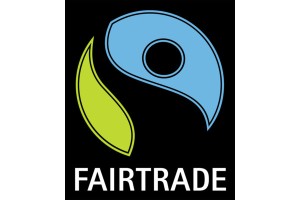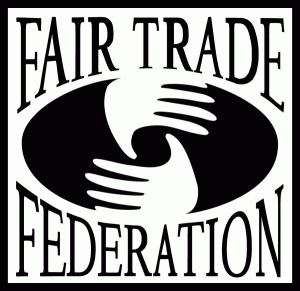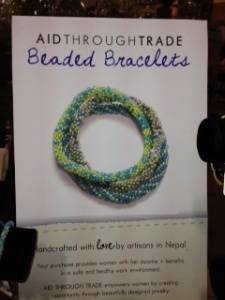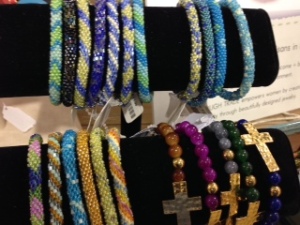While I am not that enthusiastic about shopping (largely owing to my goal to save money and to reduce my “ownership of stuff”), when I do shop, I want to be able to find good buys that suit both my tastes and my price range or fair trade treasures. This past week, I devoted some time to shopping for fair trade products with the intention of celebrating Fair Trade Month (an annual global event occurring in the month of October).
Being the creature of habit that I am, I initiated my shopping expedition on the Internet with a Google search of “fair trade” products. I learned a lot here about fair trade in general. Specifically, I discovered that there are several “fair trade organizations” whose labels certify its members as being in compliance with fair trade rules and standards. These organizations include, but are not limited to:
Fair Trade USA
Fair Trade International
Fair Trade Federation
Most of the products that I found were coffee, tea, handcrafts, sugar, bananas, honey, cotton, fresh fruit, chocolate, flowers and gold. I also found some sports balls, particularly soccer balls; however, with my soccer children all being adults now, there was not anything there for me. After poking around some more, I found some nice scarves.
Then needing a break, I visited my favorite local garden store, Homestead Gardens, where lo and behold, I was greeted by a beautiful display of fair trade roll-on bracelets by a company called Aid Through Trade.
Then I went to Target and found that several of the products they carry are certified green and fair trade. I am confident that with more time, for visiting stores in my area, I will find many other fair trade products.
On my return to my computer, my search for “fair trade” products took a new and unexpected turn. I branched out beyond the restrictions of sites operated by the major fair trade organizations, and instead, looked for products, particularly clothing, that I liked. In each instance, while browsing the various online company catalogs, I also read the sections of the websites entitled “our story” or “our mission” and discovered many businesses, who may not carry the “fair trade certification” issued by the major fair trade organizations or federations, but who endorse sustainability, practice fair trade in their dealings with exporters who provide their materials and who promote conservation and clean energy initiatives.
The lesson learned here is that we definitely should support the certified fair trade organizations for the remarkable work that they perform and their efforts to ensure decent wages to exporters of so many of the products that we enjoy. However, we also should support companies not listed on these sites under these “certified fair trade labels” who also work hard to deliver quality products, treat their employees and their business partners fairly while investing in their local communities. These companies often are under the radar of widespread advertisement, but they are the “fair trade treasures.” I hope that each of you will get out this month and do a little shopping, paying visits to small businesses and boutiques in your neighborhoods to discover your own “fair trade treasures.” To do so is to live green, be green.








